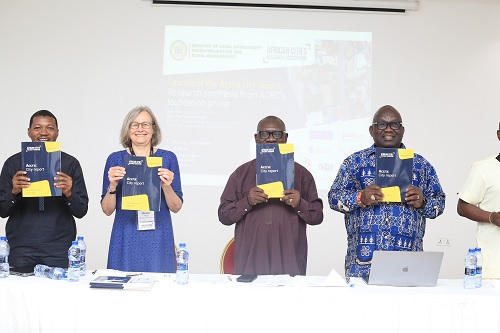In a significant step towards transforming Accra into a sustainable and inclusive city, the Accra City Synthesis Report has been launched.
This comprehensive study, developed in partnership with the African Cities Research Consortium (ACRC), offers evidence-based strategies to address the capital city’s urbanisation challenges.
It is based on extensive research and stakeholder consultations and identifies six key issues facing Accra. They comprised of infrastructure deficits, housing shortages, weak land-use enforcement, limited management reforms, ineffective waste disposal systems and the growth of informal settlements.
Report
To tackle these challenges, it recommends incorporating informal settlements into the urban framework, fostering economic growth and enhancing social cohesion to improve residents’ quality of life.
A major focus of the report is on rethinking housing policies to recognise informal settlements as integral to the city’s urban landscape.
Rapid growth
At the launch of the report yesterday, the Minister of State at the Ministry of Local Government, Decentralisation and Rural Development, Osei Bonsu Amoah, emphasised the need for a unified commitment to the sustainable development of urban areas, noting that such effort was essential for the nation’s overall progress.
![]()
He noted that Accra’s rapid growth had resulted in a host of interconnected issues, including infrastructure and housing deficits, inadequate waste management and the prevalence of informal settlements.
Mr Amoah further stated that the report went beyond data collection, offering actionable insights into addressing those issues through comprehensive policy reform.
The minister thus called for a broader discussion around the election of metropolitan, municipal and district chief executives (MMDCEs) to enhance accountability and representation at the local government level.
He noted that although previous efforts to implement this proposal were met with obstacles, the ongoing conversation highlighted the potential benefits of electing MMDCEs.
“While elections do not guarantee perfect outcomes, they promote accountability, as representatives know they are answerable to the people,” he said.
He emphasised that the government was committed to strengthening local governance and advancing decentralisation to ensure inclusive and participatory development across the nation.
“Our MMDAs play a critical role in planning, managing and implementing policies that address the needs of our people,” the minister remarked.

